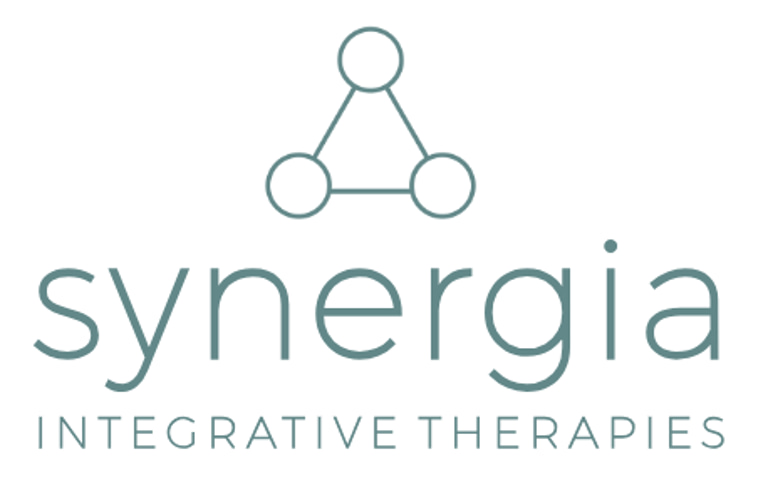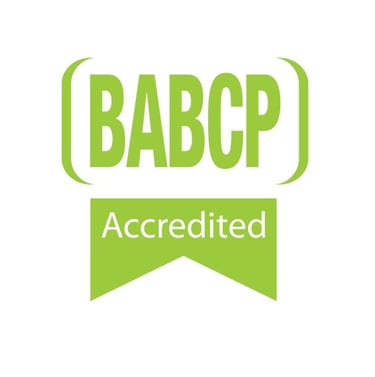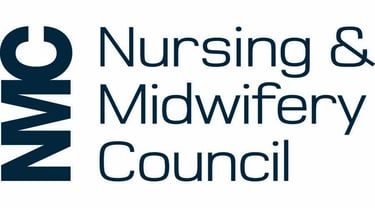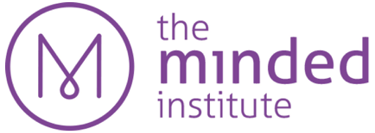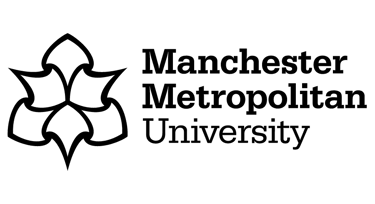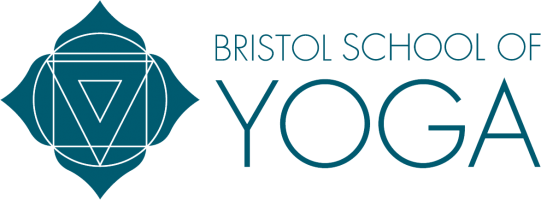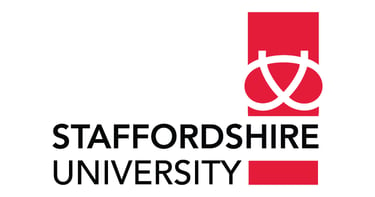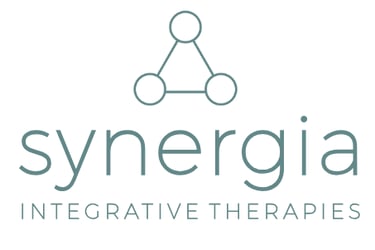Therapy Services
Dialectical behavioural therapy (DBT)
DBT is a specialized form of psychotherapy designed to help individuals manage intense emotions and develop healthier coping mechanisms. Originally developed by Dr. Marsha Linehan in the 1980s to treat borderline personality disorder (BPD), DBT has since been adapted to treat a wide range other of mental health conditions, including depression, anxiety, post-traumatic stress disorder (PTSD), eating disorders, substance abuse and other problems that cause recurrent difficulties with regulating emotions, self-destructive behaviours or relationship issues.
DBT blends cognitive-behavioral techniques with principles from mindfulness and acceptance. Its' core philosophy is based on the concept of "dialectics," which involves balancing two opposing ideas—acceptance of one’s current situation and the need for change. This balance encourages individuals to accept themselves as they are while working toward improving their behaviors and managing emotions. Through DBT, individuals can achieve a greater sense of emotional stability and improve their quality of life.
Full course of DBT consists of four key modules:
Mindfulness: Teaches individuals to stay present in the moment and observe their thoughts and emotions without judgment, helping to reduce emotional reactivity.
Distress Tolerance: Provides techniques for managing crises and tolerating emotional pain without resorting to harmful behaviors, such as self-harm or substance use.
Emotional Regulation: Helps individuals understand and manage intense emotions by identifying triggers and learning how to respond more effectively to emotional challenges.
Interpersonal Effectiveness: Focuses on building healthier relationships by improving communication, setting boundaries, and navigating conflict in a constructive way.
Important: the best available DBT treatment is usually delivered in a group format for 6-12 months, with some group clients also receiving additional individual DBT sessions with a therapist and clients are able to access out of hours crisis-management calls with a DBT therapist throughout their week. However, please note that as I am an independent practitioner (rather than working as part of a DBT team), the DBT treatment I offer includes only the individual DBT therapy session component and not the DBT group or between-sessions crisis calls options. The costing of the DBT sessions I offer also reflects this fact.
If you have tried DBT before and are looking for a refresher of, or if you are not able to fund the whole course of DBT, or perhaps if there are only specific modules and skills you want to work through, we can adapt your treatment plan to your individual needs.
Number of sessions: varies depending on how many DBT modules are completed and treatment progress, but clinical DBT guidelines usually recommend a full course of DBT which is around 34 sessions, especially if you're trying DBT for the first time
Frequency of sessions: usually once or twice a week, especially in the earlier parts of treatment. Later in treatment sessions may be slightly more spread out
Length of sessions: usually 60 min for adults/older adolescents and 45 min for children/younger adolescents depending on their developmental stage
Suitable for: people aged 6 or older
Cost: usually £75 for 60 min (adults/older adolescents) or £56 for 45 min (children/younger adolescent). I offer some low cost spaces for people on low income, but this may include a longer wait. I trust all my clients to honestly choose the appropriate session cost for them to enable me to continue offering discounted sessions to those in need. Discounted rates are £60 for 60 min, and £46 for 45 min.
Family-based treatment for eating disorders (FT-ED)
I am experienced and trained in two family treatments for child/adolescent eating disorders: FT-AN (family treatment for anorexia nervosa, also known as 'The Maudsley approach') and FBT (family based treatment for eating disorders, also known as the 'Lock & Le Grange model'). Research has consistently demonstrated the effectiveness of both of these in improving recovery outcomes and lowering the likelihood of relapse of eating disorders in children/adolescents. Family treatments are considered the 'gold standard' options for child/adolescent eating disorders by the National Institute of Clinical Excellence (NICE) in UK.
Both approaches are based on the belief that family support is essential for recovery. Families work closely with a trained therapist to guide their child/adolescent through the healing process. FT-AN and FBT recognize that eating disorders are not just an individual issue but can affect the entire family. Eating disorders often disrupt family dynamics, leading to conflicts and misunderstandings. By engaging the family, family therapies aim to address these dynamics and foster a supportive, understanding environment that facilitates recovery. Both approaches emphasise that families are not responsible for causing eating disorders but can play a crucial role in helping the child/adolescent recover.
All immediate members of the family are expected to attend each session with the child/adolescent who experiences the eating disorder symptoms (i.e. both parents/carers and all siblings, wherever applicable).
For families where FT-AN/FBT may not be feasible or preferred, individual CBT-E (Cognitive Behavioural Therapy for Eating Disorders) for children/adolescents is a suitable alternative treatment option that I offer (see the above CBT section for details).
Number of sessions: varies depending on specific eating disorder being treated and treatment progress, but clinical family treatment guidelines usually recommend 15-30 sessions over 6-12 months
Frequency of sessions: usually once or twice a week, especially in the earlier parts of treatment. Later in treatment sessions may be slightly more spread out
Length of sessions: usually 60 min
Suitable for: people aged 8 or older
Cost: usually £85 for 60 min. I offer some low cost spaces for people on low income, but this may include a longer wait. I trust all my clients to honestly choose the appropriate session cost for them to enable me to continue offering discounted sessions to those in need. Discounted rates are £75 for 60 min.
Talking Therapies:
Cognitive Behavioural Therapy (CBT)
CBT is a structured, goal-oriented form of psychotherapy that focuses on the relationship between thoughts, feelings, and behaviors. Developed in the 1960s, CBT is based on the idea that our thoughts (cognitions) significantly influence our emotions and behaviors. By identifying and challenging unhelpful or distorted thinking patterns, CBT helps individuals develop healthier thought processes and coping strategies, leading to positive emotional and behavioral changes.
A key feature of CBT is its focus on the "here and now." Unlike some forms of therapy that explore past experiences in depth, CBT is more concerned with how current thoughts and beliefs impact a person’s present functioning. Clients work with their therapist to identify negative or irrational thought patterns, known as cognitive distortions, which contribute to distress. Examples include catastrophizing (expecting the worst) or overgeneralizing (viewing a single negative event as a never-ending pattern of defeat).
However, for some people, in later stages of CBT it may also be important to look at how past life events have shaped a person's way of thinking and behaving; this is sometimes referred to as 'schema therapy'. We can work together to identify and evaluate the impact of your past experiences, helping you to let go of coping strategies that no longer serve you, as well as developing new ones that are more adaptive (these aspects of our mind are in CBT referred to as 'core beliefs' and 'life rules/assumptions').
CBT employs a range of practical techniques, such as thought records, behavioral experiments, and exposure therapy, to help individuals challenge these distortions and reframe their thinking. Clients are often given homework assignments between sessions to practice new skills and reinforce learning.Treatment is typically short-term (up to a few months in duration) and the skills learned in therapy can be used long after treatment ends, making CBT a highly effective tool for long-lasting change.
CBT is widely used to treat a variety of mental health conditions: depression (including suicidal and self harm symptoms), anxiety disorders (such as generalized anxiety disorder, panic disorder, agoraphobia, health anxiety and social anxiety), obsessive-compulsive disorders (OCD), post-traumatic stress disorder (PTSD), phobias, tics/Tourette's, tinnitus, misophonia, body dysmorphic disorder, body-based repetitive behaviours (such as skin picking or hair pulling). It has also been shown to be effective in managing stress, anger, grief, sleep problems, chronic pain, and supporting people to live with chronic health conditions (including dealing with so-called 'medically unexplained symptoms'). CBT-E is a specialist model of CBT for eating disorders, which I am also trained in.
Number of sessions: varies depending on problem being treated and treatment progress, but clinical CBT guidelines usually recommend between 8 -20 sessions in total
Frequency of sessions: usually once a week, especially in the earlier parts of treatment. Later in treatment sessions may be slightly more spread out
Length of sessions: usually 60 min for adults/older adolescents and 45 min for children/younger adolescents depending on their developmental stage
Suitable for: people aged 8 or older
Cost: usually £75 for 60 min (adults/older adolescents) or £56 for 45 min (children/younger adolescent). I offer some low cost spaces for people on low income, but this may include a longer wait. I trust all my clients to honestly choose the appropriate session cost for them to enable me to continue offering discounted sessions to those in need. Discounted rates are £60 for 60 min, and £46 for 45 min.
Somatic Therapies:
Yoga Therapy
Yoga Therapy is a type of somatic therapy focused on the connection between our mind and body, and it uses practices to target both for holistic healing. Yoga Therapy integrates the ancient principles of Yoga and Buddhist philosophy as well as modern evidence-based medical and psychological science.
Unlike a traditional yoga class, where the focus is primarily on physical postures and relaxation, yoga therapy is a therapeutic approach designed to address your specific physical, emotional, or psychological needs. The treatment plan is developed after a thorough initial assessment and personal goals you wish to work towards are agreed and reviewed regularly during your treatment.
Yoga Therapy aims to balance the health of the body and mind by using a combination of movement, yoga postures (asanas), breathing exercises (pranayama), lifestyle change, philosophy, vocal work, gestures, integral eye movement therapy, mindfulness and meditation practices (amongst others). These elements are carefully tailored to you considering your unique symptoms, strengths, challenges, and lifestyle.
Yoga therapy can help to manage and improve a wide range of conditions, including: anxiety, depression, trauma/PTSD, cardiovascular disease, respiratory issues (such as asthma and COPD), digestive problems (such as IBS or IBD), ME/CFS, chronic pain (such as fibromyalgia and back pain), Long Covid, hormonal and fertility issues (including menopause), cancer, joint and bone problems (such as osteoporosis, osteoarthritis, spinal pathologies), neurological conditions (such as Parkinson’s, dementia, stroke or traumatic brain injury), sleep disorders, psychosis & schizophrenia, substance misuse, neurodivergence (such as autism and ADHD), connective tissue disorders (such as hypermobility and Ehlers-Danlos syndrome), eating disorders and weight problems, renal dysfunction, dermatological (skin) problems and lymphatic system problems. It can also support us with general life stress, adjusting to change, loss and in end of life care.
This approach fosters emotional, physical and psychological self-awareness, allowing individuals to develop a deeper understanding of themselves. Yoga therapy is accessible to people of all ages and abilities, making it a flexible and adaptive form of therapy. Its goal is not only to alleviate symptoms but also to empower individuals with tools to manage their health, promote resilience, and improve their quality of life over the long term.
I have trained as a Yoga Therapist with the world- renowned Minded Institute in London. Aside from completing their 2 year Yoga Therapy Diploma I also completed an additional 5 days training on delivering Yoga Therapy for children and adolescents, and Yoga Therapy for grief, loss and end of life care.
The number of sessions and length of treatment depends on your needs, but typically attending blocks of 6 sessions at a time and then reviewing treatment progress works well for many people. When working with children/adolescents, we often have in the room their parent/s or carers, although this isn’t always necessary or preferred depending on the client and their symptoms.
Number of sessions: varies depending on specific problem being treated and treatment progress; we usually would complete 6 session blocks together and review treatment after each block
Frequency of sessions: usually once a week, especially in the earlier parts of treatment. Later in treatment sessions may be slightly more spread out
Length of sessions: usually 60 min for adults/older adolescents and 45 min for children/younger adolescents depending on their developmental stage
Suitable for: people aged 5 or older
Cost: usually £75 for 60 min (adults/older adolescents) or £56 for 45 min (children/younger adolescent). I offer some low cost spaces for people on low income, but this may include a longer wait. I trust all my clients to honestly choose the appropriate session cost for them to enable me to continue offering discounted sessions to those in need. Discounted rates are £60 for 60 min, and £46 for 45 min.
Integrative mind-body therapy
This is an innovative treatment that combines elements of top-down approaches of talking therapies with bottom- up approaches of somatic therapy, carefully tailored to your unique physical, psychological and spiritual needs.
It is becoming more apparent from recent scientific research and anecdotal client evidence that engaging with single-model treatments (i.e. doing standalone talking therapy OR standalone somatic therapy) does not help many people. So, this therapy is particularly beneficial for those dealing with symptoms that have not responded well to conventional treatments.
In this type of therapy, we acknowledge and embrace the deep connection between our bodies, minds and spirits. Treatment interventions from various evidence-based therapy modalities and traditional wisdom are combined to attend to your health at each of these levels, encouraging truly holistic healing.
We will use principles of polyvagal and attachment theories to help us develop a supportive and safe therapeutic relationship. Within this we will invite all parts of you without judgment and with compassion, reflecting on what you wish to change and helping you to develop ideas and practice skills to make this change happen.
This includes changing how you think, feel and behave in your daily life wherever possible and relevant, whilst working on acceptance and tolerance of things that perhaps cannot be controlled or altered. We will work together on soothing and balancing your nervous system to enable you to feel a sense of control, capability and safety within your body and mind. We will work together as a team to empower you to take your well-being into your own hands.
Number of sessions: varies depending on specific problem being treated and treatment progress; we usually would complete 6 session blocks together and review treatment after each block
Frequency of sessions: usually once a week, especially in the earlier parts of treatment. Later in treatment sessions may be slightly more spread out
Length of sessions: usually 75 min for adults/older adolescents and 45 min for children/younger adolescents depending on their developmental stage
Suitable for: people aged 5 or older
Cost: usually £93 for 75 min (adults/older adolescents) or £56 for 45 min (children/younger adolescent). I offer some low cost spaces for people on low income, but this may include a longer wait. I trust all my clients to honestly choose the appropriate session cost for them to enable me to continue offering discounted sessions to those in need. Discounted rates are £83 for 75 min, and £46 for 45 min.
Other Therapies:
8-Weeks Online Yoga Therapy Course for the Mind (Minded Institute)
The ethos of this course is: acceptance, community, awareness, regulation and empowerment. This 8-week course blends yoga therapy techniques with insights from psychotherapy and neuroscience to:
Enhance the nervous system's function to promote well-being
Increase self-awareness through mindfulness practices
Reduce rumination and break unhelpful thought and behavior patterns
Participants will meet once a week for two hours over the course of eight weeks. To ensure a supportive therapeutic experience, each course is capped at max 10 places. Each session delves into how the mind, body, and brain interact, providing practices that nurture well-being in each area. Sessions consist of a 70-minute yoga practice, breathwork, additional mind-body exercises, and a group discussion. The first two weeks focus on breath regulation as a way to improve the nervous system's ability to handle stress. Weeks 3 to 5 explore the connection between the body and emotions, while weeks 6 to 8 center on mental well-being. To support home practice, participants will receive a detailed manual and an audio set with tracks aligned to each week's content. Importantly, no prior yoga experience is necessary to join the course.
Both mindfulness and therapeutic yoga are widely recognized for their ability to alleviate stress, anxiety, and depression. Approaches that target only the mind often neglect how closely mental habits are linked to the body's and brain's functioning. Without incorporating movement or breathwork, it’s challenging to address ingrained patterns of thought and reaction. Similarly, focusing solely on the body may overlook the root causes of habitual responses to the environment. This course uniquely addresses the whole person—mind, body, and brain—fostering long-lasting, transformative change.
Course exclusion criteria:
-if you are currently receiving any talking therapy from me
-if you are experiencing: current PTSD symptoms, current or recent psychosis, borderline personality disorder symptoms, current treatment for an eating disorder, current ME/CFS symptoms, any physical conditions/symptoms that may prohibit you from the physical element of the course, recovery from addictions, current or recent (last 3 months) suicidal intent/plans/attempts. For such clients 1:1 therapy sessions are recommended instead (see above for details of what I offer). Each client's suitability will be screened and where relevant discussed in a pre-course call.
Number of sessions: 8 video sessions
Frequency of sessions: once a week for 8 weeks
Length of sessions: each session is 2 hr long
Suitable for: adults aged 18 or over; see other exclusion criteria on the left
Cost: £200 per person for the whole course and learning materials. I will offer one place per course at a heavily discounted rate of £100 to a chosen person on low income upon further application.
There will be a waiting list for other low cost places in the future courses. The low cost place award will be decided for each course based on a 300 word personal statement of your circumstances submitted to me ahead of the course.
I trust all my clients to honestly choose the appropriate session cost for them to enable me to continue offering discounted sessions to those in need.
There's currently no group courses planned
